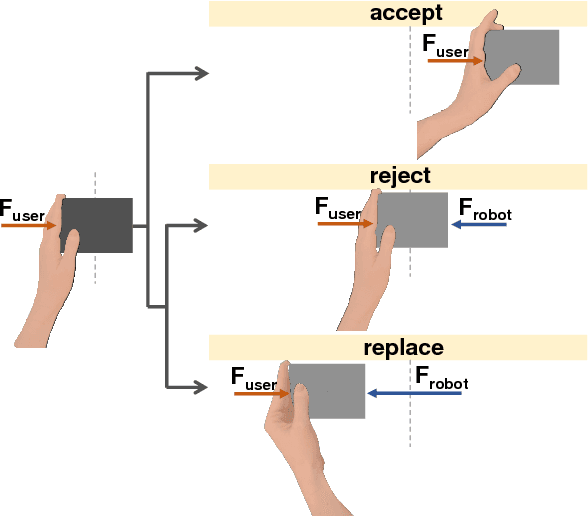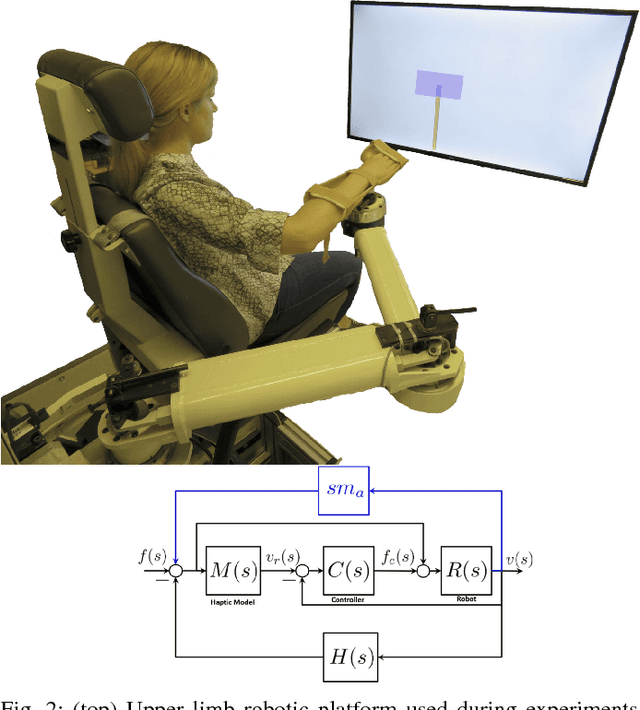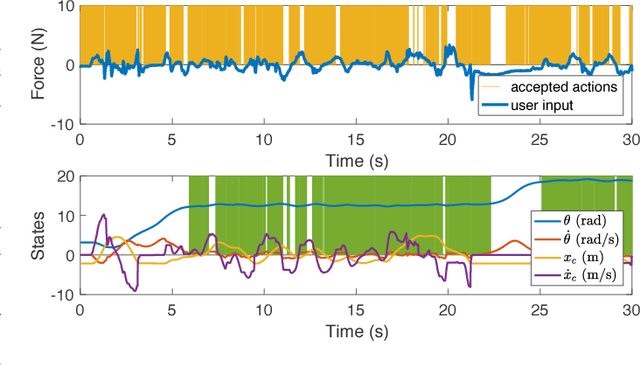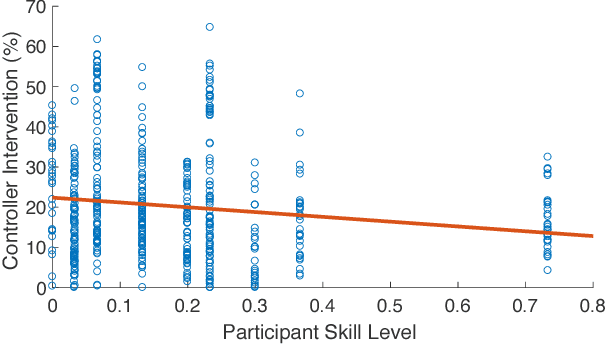Julius Dewald
Online User Assessment for Minimal Intervention During Task-Based Robotic Assistance
Jun 06, 2018



Abstract:We propose a novel criterion for evaluating user input for human-robot interfaces for known tasks. We use the mode insertion gradient (MIG)---a tool from hybrid control theory---as a filtering criterion that instantaneously assesses the impact of user actions on a dynamic system over a time window into the future. As a result, the filter is permissive to many chosen strategies, minimally engaging, and skill-sensitive---qualities desired when evaluating human actions. Through a human study with 28 healthy volunteers, we show that the criterion exhibits a low, but significant, negative correlation between skill level, as estimated from task-specific measures in unassisted trials, and the rate of controller intervention during assistance. Moreover, a MIG-based filter can be utilized to create a shared control scheme for training or assistance. In the human study, we observe a substantial training effect when using a MIG-based filter to perform cart-pendulum inversion, particularly when comparing improvement via the RMS error measure. Using simulation of a controlled spring-loaded inverted pendulum (SLIP) as a test case, we observe that the MIG criterion could be used for assistance to guarantee either task completion or safety of a joint human-robot system, while maintaining the system's flexibility with respect to user-chosen strategies.
* 10 pages
 Add to Chrome
Add to Chrome Add to Firefox
Add to Firefox Add to Edge
Add to Edge